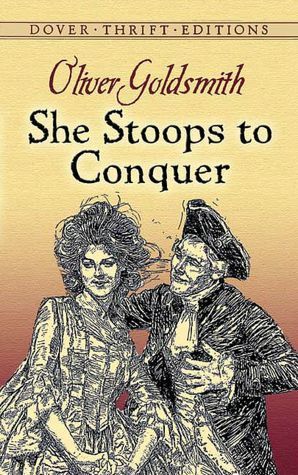ACT THE SECOND.
by“Act the Second” unfolds a delightful mix of confusion, comedy, and character revelation, with misunderstandings driving the plot deeper into theatrical mischief. Hardcastle’s efforts to coach his servants on how to act in the presence of gentlemen showcase his attempt to maintain social order. However, their bungled attempts at elegance and clumsy behavior set the stage for comic failure. When Marlow and Hastings arrive, they continue under the mistaken belief that they’ve arrived at an inn. Hardcastle, attempting to be gracious, is perceived by them as a meddlesome innkeeper. This misunderstanding allows Marlow and Hastings to speak and behave more freely, uninhibited by the usual social codes that govern visits to a wealthy home. While Hastings is amused, Marlow acts with a blend of politeness and expectation, further confusing their host. Each side believes the other is acting oddly, heightening the tension and laughter.
Marlow’s discomfort with high-status women emerges clearly during a conversation with Hastings. He candidly admits he becomes nearly paralyzed in the presence of women of his own class. Yet when the stakes feel lower—when he believes he’s talking to a barmaid—his charm and wit return. This contradiction exposes a rich inner conflict that makes Marlow both vulnerable and human. Hastings, aware of this flaw, navigates their surroundings with more ease, subtly using the situation to protect his plans with Miss Neville. Marlow’s shy nature isn’t mocked, but explored through interaction. It becomes clear that beneath his formality is someone yearning to connect without fear of judgment. These moments build depth into what might otherwise be a simple romantic plotline.
Meanwhile, Hastings and Miss Neville use the mistaken inn scenario to their advantage. They support the continued deception, seeing it as a way to escape the control of Mrs. Hardcastle. The more Marlow remains unaware, the more they can maneuver around societal restrictions and guardianship. Tony, too, plays his part, resisting the forced match with Miss Neville. Though seen as foolish by his mother, he cleverly avoids commitment. His antics not only protect his own freedom but assist the others in their private schemes. Mrs. Hardcastle, focused solely on securing Constance’s fortune, remains oblivious to the unraveling of her carefully crafted plans. The act shows how each character seeks autonomy, even while wrapped in comedic disguise.
The comedy intensifies during interactions between Marlow and Hardcastle, who still do not see eye to eye. Marlow’s demands for food and lodging confuse and offend Hardcastle, who tries to remain courteous but grows increasingly baffled. The dynamic becomes a comedy of manners turned upside-down, where traditional roles are reversed without the characters realizing it. Marlow treats Hardcastle as a service provider, while Hardcastle expects to be treated with the respect due a gentleman of his standing. This tension not only drives the humor but also comments on how social expectations dictate behavior. When those expectations are flipped, each man reveals more than he intends.
Miss Hardcastle now enters the game, adopting the disguise of a barmaid to learn more about Marlow’s character. Her observations confirm what she already suspects—Marlow is two different people depending on the social context. Around a lady, he stammers and retreats; around a supposed barmaid, he flirts easily and confidently. She sees in him a complexity that intrigues her. Rather than scorn his divided nature, she finds amusement and even tenderness in it. This scene offers a rare moment of gender role inversion, where the woman holds the power of knowledge and manipulates the encounter. Miss Hardcastle’s plan allows her to test Marlow’s affections not based on wealth or status, but sincerity. It’s a subtle challenge to the courtship norms of her time.
Throughout the act, the layered misunderstandings create a textured portrait of social structure, performance, and desire. Marlow’s inner conflict, Tony’s rebellion, Miss Hardcastle’s clever role-play, and Hastings’ strategy all reflect personal quests for love and freedom within strict societal confines. What’s comedic on the surface holds emotional truth beneath it. Goldsmith uses mistaken identity not just for laughs, but to show how individuals can only act freely when they step outside the roles society assigns them. By disrupting these roles, the characters begin to see each other—and themselves—more clearly. As the act draws to a close, every relationship hangs in balance, complicated by deceit but ripe with potential. The audience is left entertained, yet also drawn into the genuine emotional stakes beneath the satire.

